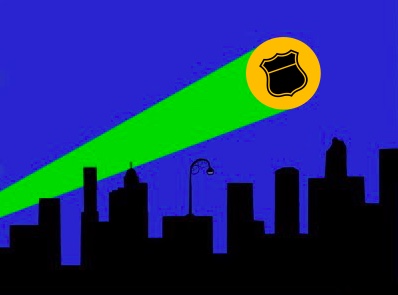Every once in a while, even an Ivy League law professor can surprise you by saying something sensible. For years I’ve been quoting Alan Dershowitz of Harvard Law School on the dangers of using judicial review to circumvent the formal constitutional amendment process:
Foolish liberals who are trying to read the Second Amendment out of the Constitution by claiming it’s not an individual right or that it’s too much of a public safety hazard don’t see the danger in the big picture. They’re courting disaster by encouraging others to use the same means to eliminate portions of the Constitution they don’t like.
Recently, I was pleasantly surprised to read this from Stephen Carter at Yale Law School:
On the opening day of law school, I always counsel my first-year students never to support a law they are not willing to kill to enforce. Usually they greet this advice with something between skepticism and puzzlement, until I remind them that the police go armed to enforce the will of the state, and if you resist, they might kill you.
Neither idea is new, but there are a lot of people who don’t seem to be willing to listen to an idea unless it comes from a ‘respectable’ source, so it’s nice to be able to quote these two.
What I’m waiting for now is an Ivy League endorsement of another idea that has been kicking around for a while, and whose time, I think, may finally have come:
Any police officer should consider, when thinking about enforcing a law, whether stopping or punishing this ‘crime’ is important enough to die for. And if it’s not, he should move on.
If you think about it, the list of such crimes is pretty short: murder, assault, grand theft or destruction of property.
But would any reasonable person risk his life to stop someone from driving 10 mph over the speed limit, or driving with a broken tail light? Would any reasonable person risk his life to prevent one consenting adult from paying another for sex? Would any reasonable person risk his life to arrest someone for smoking pot in his own home, or for selling cigarettes on a sidewalk without a license? Or to enforce a thousand other ‘crimes’ that have no actual victims?
If, as Professor Carter reminds us, a law isn’t worth killing for, then it’s not worth dying for either.
It’s not like I’m suggesting something original. Not so long ago, in response to the killing of two NYPD officers, New York’s largest police union urged its members not to make arrests ‘unless absolutely necessary’.
As a result, traffic citations dropped by 94 percent, parking violations by 92 percent, drug arrests by 84 percent, summonses for low-level offenses like public drinking by 94 percent … and the sky didn’t fall.
So why isn’t this approach taken by all law enforcement, at every level and in every jurisdiction, all the time? Why not give up making unnecessary stops and arrests?
If we’re looking for a way to relieve the escalating tension between the police and the policed, here it is. It makes sense, it’s been tried, and it works. It makes the police safer, and everyone else less fearful of the police. It effectively nullifies government over-reach before it ruins the lives of people who aren’t harming anyone. What more could we ask for?
A good step in this direction would be for police departments to start operating more like fire departments. When firefighters are needed, they are summoned. If no one summons them, they train, study, prepare… and wait.
When you see firefighters going somewhere on duty, you don’t wonder if they’re looking for a reason to cite or arrest you for something that shouldn’t be illegal, or for something that you’re not even doing, just because their department needs the revenue, or they would like to try treating a traffic stop as a general warrant. Instead, you can be pretty confident that they’re going somewhere to deal with a situation where someone actually needs, and asked for, their assistance.
How much nicer — and safer, both for the police, and for everyone else — would it be to live in a world where we could feel the same way about ‘crimefighters’ that we do about firefighters?
This article was originally posted here. It seemed worth reposting in light of recent events in Houston, where five police officers were shot while attempting to intervene in a non-violent consensual transaction. Gov. Greg Abbott said the ‘horrific attack on police officers is a solemn reminder of the service and sacrifice our brave men and women in law enforcement make every day to keep us safe’. I think it’s a reminder of something very different.
